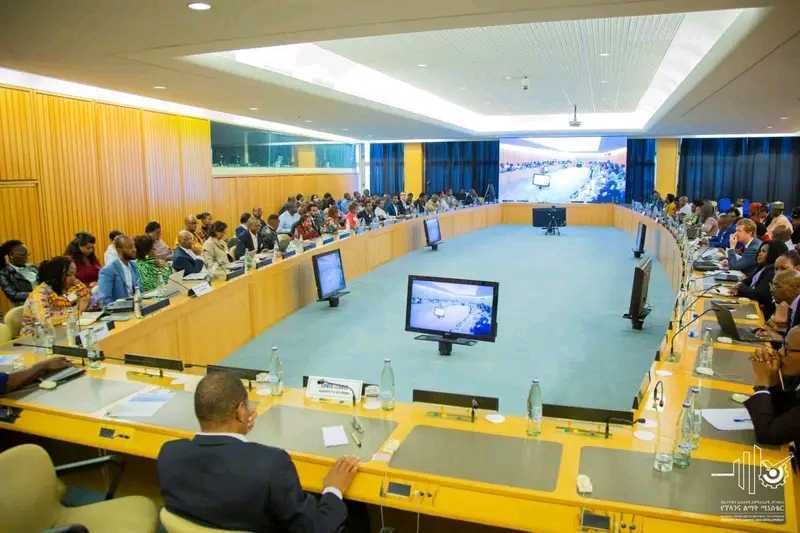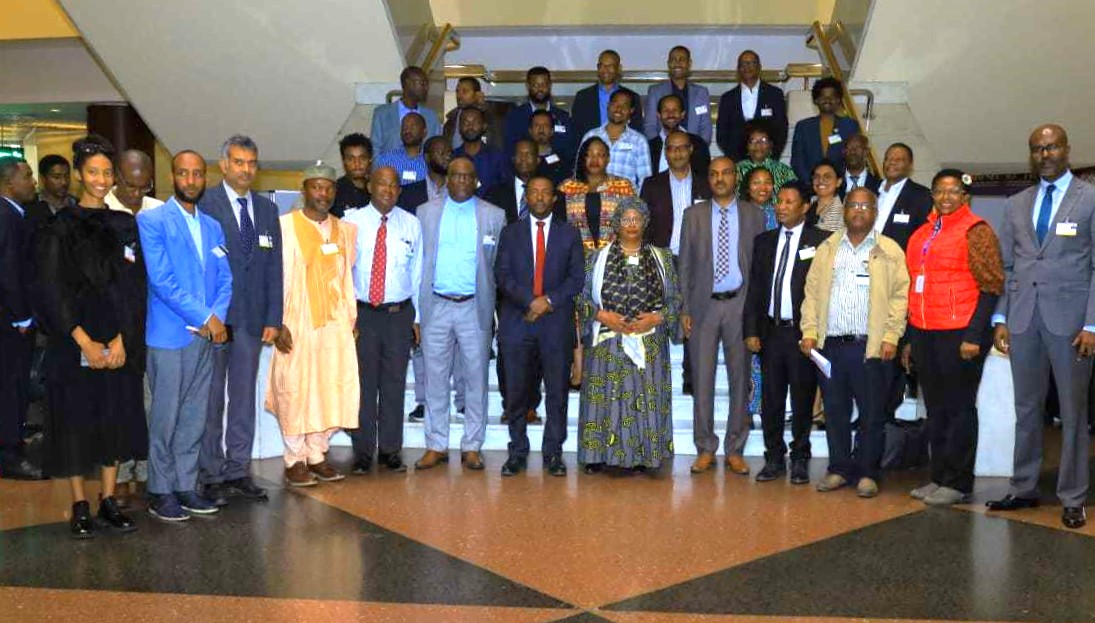The KADI project was represented at the 5th Africa Climate Talks at the 10th Session of the Africa Regional Forum on Sustainable Development (ARFSD-10) in April 2024 in Addis Ababa, Ethiopia. This article provides some context and highlights and interventions from the project’s perspective.
Africa’s GDP is reduced by 5% annually because of climate change. Africa losses 500Billoin dollars of the income generated every year. There is urgent need to stay on track towards Agenda 2030 and Agenda 2063. The key areas for transition are food systems, climate change, digital connectivity, energy security and education. We are at the midpoint of the implementation of the SDGs, in the second 10-year plan for agenda 2063 adopted in February 2024 and on the road to the Summit of the future.
“Africa has data and research in uncoordinated silos which is invisible and therefore not shareable or transferable to similar contexts. Africa needs collaboration and integration.”
The 5th Africa Climate Talks which held on April 22nd emphasised the need to democratise and strengthen Africa’s voice in the global climate negotiations, recognizing Africa’s right to development. The KADI Project starts from identifying climate service needs from the perspective of the African context by African scientists. This is our contribution to amplifying the voices of Africans in defining how to tackle a crisis from which it is experiencing the most tangible impacts. This means co-design and co-creation supporting and working with communities as done in different city pilots in the project.
One way of strengthening Africa’s voice is in terms of generation three of the National Determined Contributions (NDCs), including:
- Mainstreaming the social content and ESG. The structural and economic transition toward net zero must be just and the benefits of transitioning to a net-zero emissions economy must address equity concerns.
- Policy integration of NDCs and systemic integration.
- Mainstreaming of early warning systems of government and institutional actions.
 In the panel discussions the interventions, comments and highlights from the KADI representatives centered on the following:
In the panel discussions the interventions, comments and highlights from the KADI representatives centered on the following:
- Africa does not lack solutions. It needs collaboration, transferability, and visibility.
- Indigenous knowledge must be given its rightful place. Knowledge and data should be defined in consideration of Africa’s modes of learning, information generation and dissemination. Data is not limited to numbers and statistics. Storytelling and visual communication are vital. This will provide access to reliable, shared, and multi-stakeholder generated data. There is the need to strengthen foundational data systems to reduce fragmentation and duplication within and between countries.
- 90% of the current data on the SDGs in Africa were generated in the last two years. Most of this data is regional. Data from sub national ecosystems are mostly invisible.
- To avoid biases from models developed out of Africa, there is need to facilitate the integration of non-traditional data and use of the expertise of data experts by national agencies.
- There is need for partnerships that support training on data issues.
- In terms of governance, there is need to deliver on strong institutions, policy coordination and integration. The culture of data packaged for policy needs to be strengthened to reduce the disconnect between policies and data.
- There is a need for innovative funding mechanisms that recognize the invaluable interconnectedness between different actors and sectors of society. Funding organizations should talk to each other before talking to recipients. There is need for more involvement of ‘new’ development partners, especially policy and civil society partners. What is the tipping point in terms of quantity and duration of funding? What kinds of funding allow for effective and long-term solutions.
- Africa needs to leverage the power of its biggest human resource – youth – in meaningful ways, not as a token participant.
At the climate talks, Africa’s net zero status was discussed with opinions differing on whether Africa is net zero or not. It is worth highlighting that the continent’s carbon balance is influenced by a dynamic interplay of emissions from human activities and carbon absorption by natural ecosystems. While some regions may still act as carbon sinks, the overall trend indicates a decreasing capacity to absorb carbon, raising concerns about Africa’s net carbon status. Comprehensive and reliable data on emissions and carbon sequestration are essential to accurately assess whether Africa can achieve net zero status. This is also shown in the publication from some of the scientists participating in the KADI project, as described in our earlier article found here.


